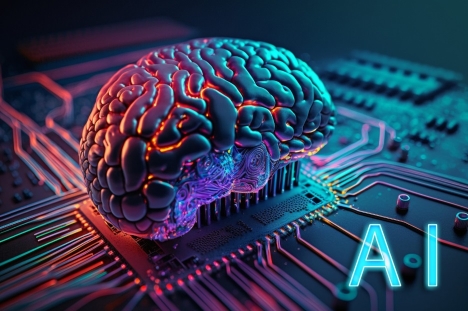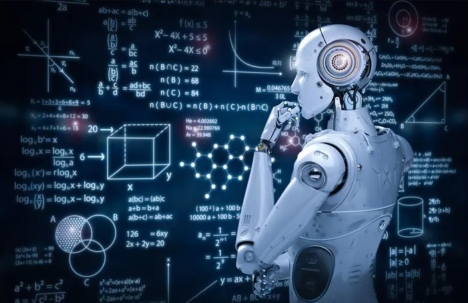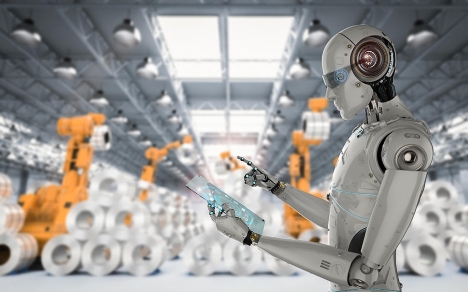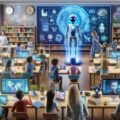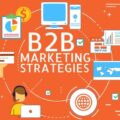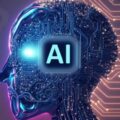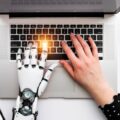How Artificial Intelligence is Changing Our Industries
For those working in a profession and wanting to learn AI, we are on the cutting edge of the revolution. It’s likely profession-based individuals are keenly aware of AI’s entrace into traditional work and new forms of work while trying to sort out how to fit learning skills like AI prompts into the process. Let’s take a look at where AI is taking various industries and the significance of learning skills like AI prompts as the world of work evolves.
Industries Embracing AI Transformation
1. Healthcare
AI has initiated a new era in all aspects of care in the healthcare industry-from diagnosis to treatment. Machine learning algorithms can analyze medical data faster and more accurately than before, allowing for earlier detection of disease, patient care and precision medicine. Healthcare professionals will turn to AI to improve patient care, improve the operation of hospitals and provide intelligence to administrative duties.
Healthcare workers should consider learning AI prompts to create algorithms for medical imaging, drug discovery and patient care. Knowing how to engineer prompts will help create more efficient and accurate models that will help improve diagnostics and treatment.
2. Finance
Artificial intelligence has penetrated the finance space with risk management, fraud detection and algorithmic trading. Because the reports generated by machine learning algorithms are based upon large data sets that are described in real time AI has provided findings that humans will only question. There is substantial use of AI in customer service functions of the banking sector, using chatbots and virtual assistants.
However, there now should be opportunities for finance professionals to be able to prompt the AI to create predictive models for stock market trends, credit scoring and customer behavioural analysis. Being able to write a prompt and utilize the AI tools will be critical as finance must be ready to act on a relevant strategy in a world of uncertainties.
3. Manufacturing
AI transforms manufacturing processes in predictable maintenance, quality control, and supply chain optimization. Smart factories utilizing AI-based technologies improve efficiencies, while also decreasing non-productive time and defects. Manufacturing professionals are becoming accustomed to focusing on the data and using AI to increasing productivity within their organizations while lowering costs.
AI prompt comprehension will help manufacturing professionals develop predictive maintenance, defect detection, and production optimization algorithms as prompt engineers offer insight into how AI models can be customized to solve attainable manufacturing issues.
4. Education
The education sector is being revolutionized by AI. The potential being developed for artificial intelligence and machine learning will use personalized learning platforms, intelligent tutoring systems, and educational chatbots to radically change the way students learn. On the other hand, AI gives educators power to maximize the utility of their lessons on student learning by facilitating relevant learning, proving effectiveness.
Value of Learning AI Prompts: Educators and instructional designers can utilize AI prompts to develop personalized learning materials or adaptive assessments. The ability to develop prompts aligned with educational standards and goals may extend the capability of the AI tools, useful in the learning environment.
AI in Lesser-Known Industries
1. Agriculture
AI is finding its place in farming as it can help to increase crop yields, project disease outbreaks, and monitor soil health. Drones equipped with AI technology are giving farmers live reports on the health of their crops, so they can make good, informed data-based decisions. AI is supporting environmentally responsible agriculture.
2. Entertainment
AI has begun to significantly disrupt the entertainment business through improved development of user-generated and produced content, personalization using recommendations and suggestion engines, and new types of experiences with virtual reality. Algorithms will consume user-data and preferences to personalize a consumer’s content suggestions, and creators and brands today are utilizing AI to create deep fake AI content. The entertainment industry has pushed the boundaries of creativity with the new direction of AI tools.
3. Human Resources
AI is changing how human resources processes are conducted from recruiting to employee engagement. Sophisticated algorithms are assisting with potential candidates, predicting turnover, and workforce management. HR professionals are already actively using AI to make informed, data-based decisions; ultimately producing a more satisfied and productive workforce.
4. Business Enterprises
In organizational contexts generative is transforming business processes, reducing costs, disrupting product lifecycles, and affording greater efficiencies of entirely unprecedented processes. Very clearly organizations that have introduced generative AI successfully have emphasized the importance of good data architecture, sound governance and, licensing considerations. The notion of generative AI in the article highlighted their strategic implementation along with an evolutionary implementation and that organizations must be judicious in their case selections and apply generative AI’s distinguishing characteristics to resolve existing outcomes.
Additionally, AI is affecting change in areas like emergency response, language acquisition, access for individuals with disabilities, and recruitment where algorithms scan resumes and eliminate bias in hiring.
As we watch change happen through artificial intelligence for industries, it is essential for practitioners to stay aware of the changing landscape and learn skills that will serve them in changing industries. As AI develops, it will always deliver new surprise solutions in unexpected places, including supporting space travel, and inventing new recipes in a kitchen.
Relevant AI and Tech-Related Skills
1. Machine Learning and Deep Learning: Those looking for positions in industries revolutionized by AI will need a sound grounding in machine learning and deep learning. Successfully developing AI solutions relies understanding how algorithms interact with the training of a model on data, how neural networks properly determine reliable output of an input signal from the data they have received.
2. Data Science: Understanding data science is necessary to identify insights from large volumes of data. Data scientists process the data; most effectively they will preprocess, do exploratory data analysis, feature selection to develop a mini-tailor-made model that becomes part of a final AI model. As well, verifying the quality of input data is an import role that the data scientist will perform,
3. Natural Language Processing (NLP): Understandably, industries that rely heavily on language and voice, such as healthcare, finance, and customer service, would need professionals with skills in NLP. They would build applications that help AI understand, interpret, and even generate human-like language.
4. Programming and Coding Skills: Great programmers who can code well, usually with a general knowledge of a few programming languages, especially python, who any AI profession should be able to, and lay out code and implement their AI business logic, Whiteboard their algorithms while making the solution scalable, efficient, and concise in lines of code.
5. Ethical AI: As AI becomes more prevalent professionals need to know how to make will-versed decisions within their own ethical considerations of how they build and bring their AI applications to the world. Decisions made in AI can have unintended consequences, and will certainly involve some ethical considerations with bias and privacy just to begin with.
Artificial Intelligence for Industries in 2025
PricewaterhouseCoopers forecasts a massive impact of artificial intelligence (AI) in 2025, particularly the use of generative AI (GenAI) impacting business operations in new ways. In the US, 73% of companies are using AI, and GenAI has led with the highest numbers with 54% of the companies surveyed implementing GenAI a year after ChatGPT became available to the market.
Their forecast for 2025 includes using GenAI to create transformative value with particular attention to scalable patterns and exploration inspiring employees to rethink how they will work. Leadership and workforce skills will be important to cultivate in effective manner for AI, especially C-Suite skills because AI has implications for the way everyone, from middle managers to the C-suite, will rethink their jobs. Building trust in AI will be critical, and companies should embed responsible AI at the outset, as it relates to GenAI and encourage the entire C suite to work in a united way to maintain trust as GenAI takes on more responsibility in business for problem-solving and decision-making.
Artificial intelligence is a game changer for industries, and a catalyst for new opportunities for professionals in every industry sector. Learning AI prompts, and developing skills to create effective AI solutions through Prompt Engineering will provide professionals with a competitive advantage.
As industries evolve and expand, being second movers new developments in AI, and skills required will be top of the list for every professional considering AI for industry development in their sector. Professionals in all sectors from health care to finance and manufacturing, and even sectors that are not top of mind, will see the impact of AI. If a professional is driving towards more AI development and improve the way industry operates, they will be leaders in the future.
Tags: artificial intelligence, business, business intelligence



